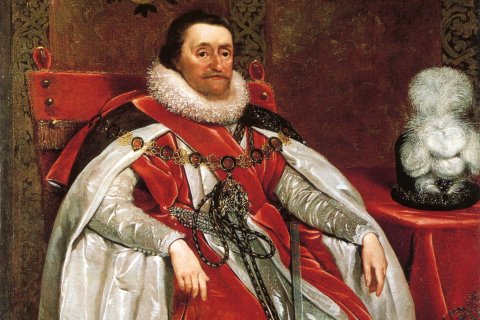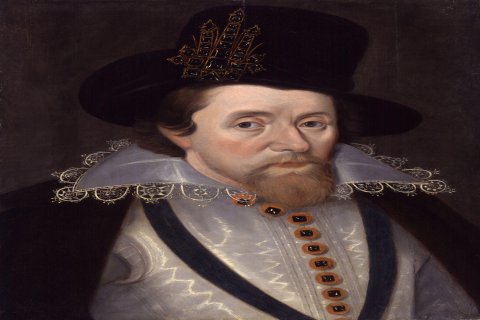King James

Title: King James: A Legacy of Language and Leadership
Introduction: King James I of England, also known as James VI of Scotland, played a significant role in shaping the English language and culture during his reign from 1603 to 1625. This article explores the various ways in which King James contributed to the development of the English language and his lasting impact on English literature, politics, and religious discourse.
The King James Bible: One of King James's most notable contributions was the commission and sponsorship of the King James Version (KJV) of the Bible, also known as the Authorized Version. Published in 1611, the KJV became the standard English Bible for centuries and greatly influenced the development of English language and literature. The KJV's elegant prose and skillful translation made it a literary masterpiece, shaping the language's vocabulary, grammar, and writing style.
The Spread of Protestantism: King James's reign coincided with the rise of Protestantism in England. His support for the Protestant Reformation led to the establishment of the Church of England as the official state church. The translation and publication of the KJV further strengthened the Protestant movement, providing a common text for religious study and devotion. King James's policies and actions had a profound impact on the religious landscape of England and helped shape the nation's religious identity.
The Divine Right of Kings: King James was a proponent of the doctrine of the divine right of kings, asserting that monarchs derived their authority directly from God and were therefore accountable only to Him. This belief in monarchical absolutism gave rise to conflicts with Parliament, which led to the English Civil War in the 17th century. However, the concept of divine right played a significant role in shaping political power dynamics during King James's reign.
Influence on Literature and Poetry: King James's court attracted a circle of renowned writers, poets, and scholars. His patronage of the arts and his own literary interests contributed to the flourishing of English literature during his era. John Milton, William Shakespeare, and Francis Bacon were among the prominent figures who benefited from King James's support and encouragement. Their works, inspired by the King's court and his patronage, enriched the English literary landscape and continue to be celebrated today.
Legacy in English Language: King James's contributions to the English language extended beyond the KJV. He promoted the standardization of English spelling and pronunciation, encouraging the use of a common literary standard. His patronage of scholars and writers helped establish London as a literary and intellectual hub, attracting талантливых people from various parts of the realm. King James's efforts to unify and refine the English language laid the foundation for the modern English we use today.
Conclusion: King James I of England left an enduring legacy on the English language, literature, religion, and politics. His patronage of the arts, his sponsorship of the KJV, and his influence on language standardization were instrumental in shaping English culture and identity. The King James Bible remains a revered literary and religious text, and his contributions to the English language continue to be celebrated by scholars and readers alike. King James's reign marked a significant chapter in English history, leaving a lasting impact that continues to resonate in the modern world.







